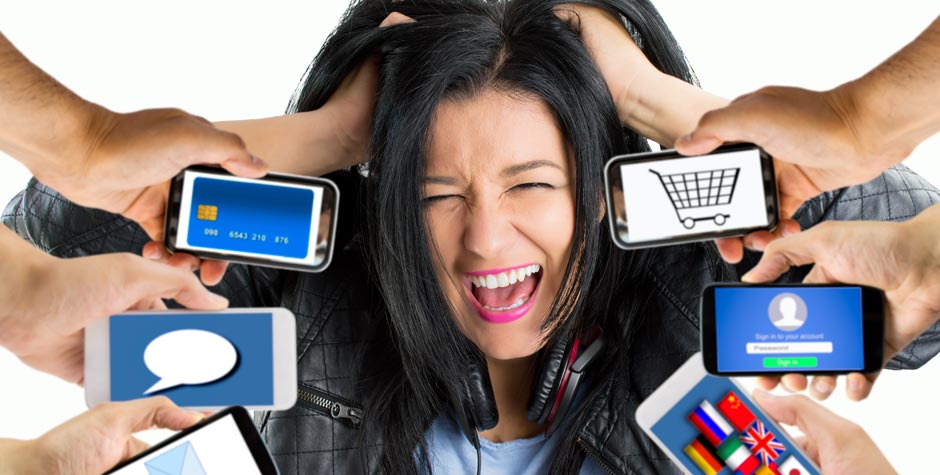Not long ago, I found myself in a client meeting, sitting opposite a senior manager from the overseas parent company. Before him at the conference table he had laid out three telephones, a computer and a tablet. He was also attempting to pay attention to a web-delivered audio visual presentation, supplemented by comments from his five colleagues in the room and our three-person consulting team. We found ourselves repeating material he had missed while responding to ping after ping from his devices. He struggled to handle it all and his face showed the strain.
Do electronic connections in general, and social media use in particular, so overload our senses and interrupt our thinking that our stress increases along with our connectedness, as it did for our overseas colleague? Or, conversely, does being connected to other people through accessible, always-on technology actually strengthen personal bonds and reduce our stress?
The answer, it seems, is both.
The Light Side – Stress Reduction
According to findings from a study by the Pew Research Center, frequent internet and social media users do not necessarily experience increased stress. Certainly, those who perform knowledge work are greatly aided by the expanded access to colleagues and information provided by digital media. It’s hard to imagine getting through a work day without electronic tools that provide instant connections with helpful co-workers or immediate answers to difficult questions. In this context, technology’s effect on our working lives has certainly been labor-saving as well as stress-reducing.
The positive effect emerges most strongly for women. The Pew Research analysis found that a woman who uses Twitter several times daily, who sends or receives 25 emails per day and who shares two digital pictures through a mobile phone per day scores 21 percent lower on a measure of stress than a woman who does not use these technologies. For men, the researchers found no relationship between psychological stress and frequent uses of social media, mobile phones or the internet more broadly. Women, it seems, not only do a better job of relationship-building in general, but are also more adept than men at using digital media to maintain those connections.
The Dark Side – Stress Increase
Even the network-building advantages of social media may have a dark side, however. Perhaps learning of our friends’ latest professional successes, or their fantastic tropical vacations, or their children’s triumphs on the soccer field increases envy-driven stress. Alternatively, it may be that some of us feel pressure to curate carefully the presentation of our own lives, highlighting the great birthday party but hiding the impending divorce. We don’t yet know for sure whether network participation causes stress, or whether it simply attracts people prone to angst.
Clearly, digital media use confers a mixed blessing. It informs and distracts, energizes and depresses, builds and breaks bonds and so brings both pleasure and pain. Our digital interactions play to our deepest human needs for intellectual and emotional stimulus, and are therefore subject to overuse, abuse and even addiction. At the same time, they afford the means for almost infinite expansion of the kinds of sharing that make human lives most gratifying. How mindfully, carefully and judiciously we use these tools will determine whether they help or harm us. To paraphrase Shakespeare’s Cassius, the fault – and the opportunity – lie not in our connections, but in ourselves.
Links
Study by the Pew Research Center
Researchers from the University of St. Gallen in Switzerland studied







